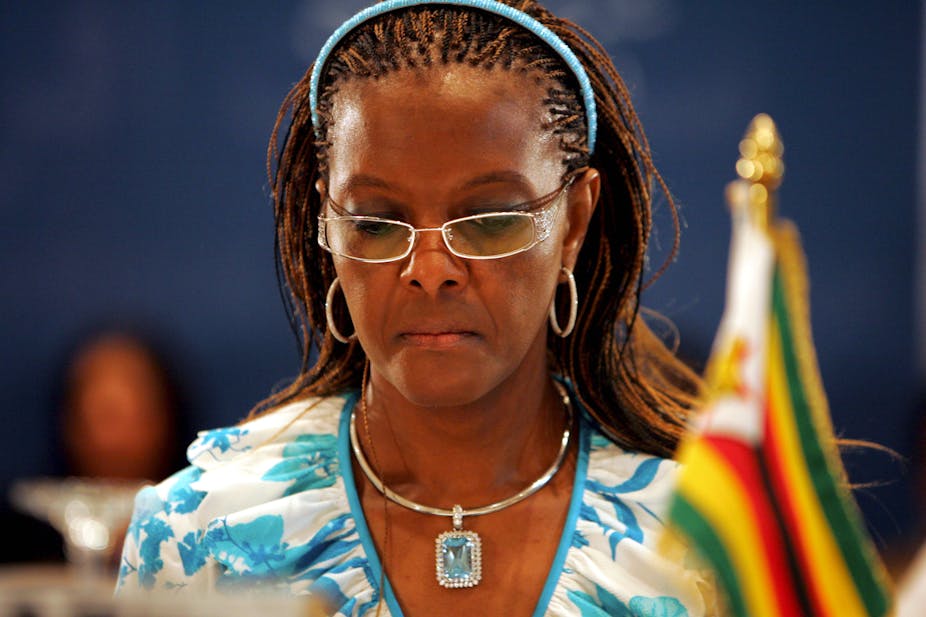Zimbabwe’s first lady, Grace Mugabe, has been granted diplomatic immunity and allowed to leave South Africa after allegedly attacking and injuring a young South African woman, Gabriella Engels (20), in Sandton, Johannesburg. Politics and Society Editor, Thabo Leshilo, asked international law expert, Professor Hennie Strydom to unpack the issues.
Was Grace Mugabe entitled to diplomatic immunity?
Broadly speaking, there are three scenarios in which immunity as a form of procedural protection against criminal proceedings in the courts of a foreign country can arise.
Firstly, in the case of immunity granted to foreign heads of state and government; secondly in the case of immunity enjoyed by diplomatic and other special envoys, their families and staff; and thirdly in the case of an ad hoc granting of immunity to a person to perform an official function in another state.
Grace Mugabe doesn’t qualify under the first two categories.
South Africa is, by law, entitled to extend immunity to people in the third ad hoc category. But I am of the view that doing so to cover an incident retrospectively is an unlawful and fraudulent use of immunity.
According to the department of international relations, she didn’t have immunity when she entered the country and she was apparently not on the department’s list of persons entitled to immunity. Whether or not she was on an official visit is also in dispute.
What is diplomatic immunity and how does it work?
The granting of diplomatic and other immunities is one of the oldest practices in international law. It’s intended to make it possible for special envoys to perform their official functions without hindrance when they’re visiting another country on official international relations business.
But immunity comes with responsibilities too. Under international law, envoys have a duty to respect the laws of the country that they’re in.
The rules and principles regulating the granting and use of diplomatic immunities are well-established. The main sources are the Vienna Convention on Diplomatic Relations of 1961, the Vienna Convention on Consular Relations (1963) and national legislation. In the case of South Africa, the Diplomatic Immunities and Privileges Act and the Foreign States Immunities Act of 1981 set out who can get immunity and under what conditions.
Can immunity be used to deny a victim justice?
Yes it can. Where immunity applies, the remedies are limited to:
the receiving state declaring the perpetrator of the unlawful act a persona non grata and sending them back to their country of origin;
the sending state waiving the immunity in which case the perpetrator can be prosecuted; and,
the perpetrator being prosecuted in the country of origin.
In the case of Grace Mugabe there is no realistic prospect that immunity will be waived nor that she’ll be prosecuted in Zimbabwe.
How else can victims get justice?
In certain cases, civil action against the perpetrator is possible, including the attachment of property owned by them in the country where the abuse has taken place. In the case of the Grace Mugabe incident, the alleged victim of the assault, Gabriella Engels, has a constitutional right to a remedy. If this right is infringed by the granting of immunity, there is a heavy onus on the South African government to justify why it did so. Failure to justify it in review proceedings may render the South African government liable.

